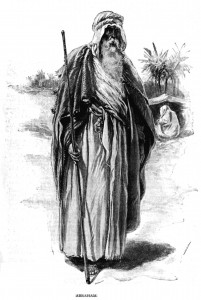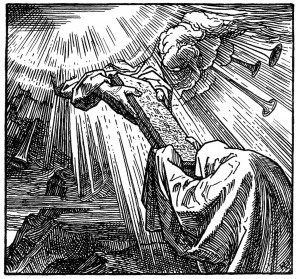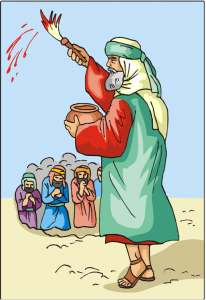Introduction
The Apostle Paul makes a very interesting, and often overlooked statement in Ephesians 2:12. For context we will quote the surrounding verses:
Wherefore remember, that you being in time past Gentiles in the flesh, who are called Uncircumcision by that which is called the Circumcision in the flesh made by hands; that at that time ye were without Messiah, being aliens from the commonwealth [citizenship] of Israel, and strangers from the covenants of promise, having no hope, and without Elohim in the world: but now in Messiah Yeshua ye who sometimes were far off are made nigh by the blood of Messiah. (emphasis added)
Paul, talking to the redeemed believers in Ephesus, states that they had been (past tense) Gentiles (comprised of various ethnic or people groups) without Elohim and without hope, but now, through the work of Yeshua at the cross, provision had been made for these alienated people-groups to become citizens of the nation of Israel. Elsewhere Paul refers to these (former) Gentiles as now being Israelites and defines them as heirs to the promises YHVH made to Abraham and calls them “seed” or descendants of Abraham (Rom 4:15; 9:8, 11; Gal 3:7, 14, 29).
Paul further says that these same people had been aliens from YHVH’s “covenants of promise” and relates this to the “Gentile” believers at Ephesus. The same applies to all redeemed believers to this day. So what covenants of promise were these redeemed believers strangers to in times past, that is, prior to their conversion? Most in the church have been taught that the New Covenant is the only covenant that pertains to them, yet Paul spoke of covenants (plural) of promise. To what was he referring? The two main covenants of the Tanakh (the Old Testament) affecting the nation of Israel were the Abrahamic Covenant and the Mosaic or Sinaitic Covenant. Additionally, Jeremiah prophetically speaks of a New (or Renewed) Covenant that YHVH would make with the two houses of Israel (Jer 31:31–33); that is, a refreshed version of a former (marital) covenantal agreement which, Israel broke with YHVH (verse 32). These are the three principal covenants that the Scriptures reveals affect YHVH’s people. Clearly, Paul is referencing these three covenants in Ephesians 2:12 (see the Jewish New Testament Commentary, by David Stern, p. 583).
Which of these three covenants forms the bedrock upon which the others are based, and Continue reading





